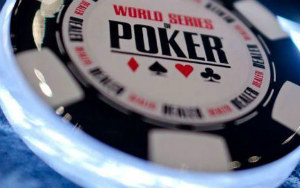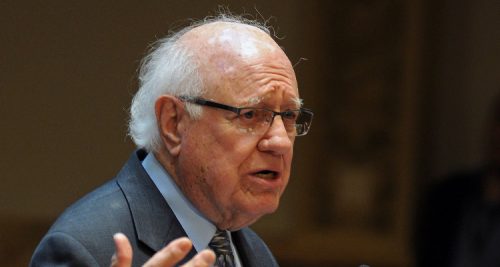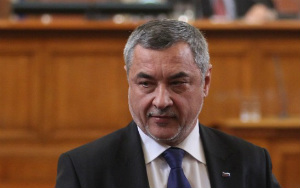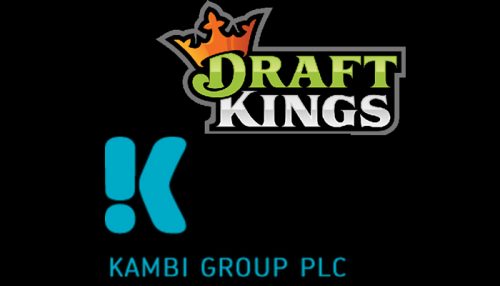Saturday, June 30, 2018
Amax international net loss down to 6 5m
Mike Takayama Wins 2018 WSOP $1,000 No-Limit Hold’em Super Turbo Bounty

The $1,000 buy-in event was played on Friday at Rio All-Suite Hotel & Casino. There were over 1,400 players to have registered when cards were thrown in the air and by the time registration closed, the field counted 2,065 persons to improve from last year’s 1,867-strong field.
A prize pool of $1,858,500 was generated and the top 310 runners left with a share of it. It is also important to note that being a bounty, the tournament awarded $300 to players for each fellow competitor they eliminated over the course of action.
The turbo format provided for quick action and great poker thrill. It took just a few hours for the 2,000-plus-person field to be reduced to the final nine who comprised the official final table. The final table itself was not a long ordeal. And it looked as if Takayama was very comfortable playing that final stage of the event.
Final Table and Heads-Up
As for Takayama, the eventual winner was a fierce contender, playing aggressively and putting quite some pressure on his fellow final tablists. It really looked as if the player went all in more frequently than folding hands.
On two of these occasions, odds were all against him until the very last moment possible. Yet, despite all the dangerous situations Takayama put himself into, the player was the last man standing after the final hand of the day was dealt and after surviving his last all in confrontation against his Italian heads-up opponent, Lorenc Puka.
The final table lasted 49 hands, while Takayama took just ten hands to finish off Puka in their two-handed duel, despite the latter’s efforts. Puka manged to double through the eventual champion early in the match. However, he was offered no more chances to reduce the huge gap between him and his opponent.
Hand #49 of the final table turned out to be the tournament’s final one dealt, Takayama challenged Puka by moving all in and the Italian called. Takayama tabled [Kd][Jc] to Puka’s [Ad][4d]. The board ran out [5h][4h][Kh][10c][Jd] to deny the Italian player his first-ever title from the series. Puka collected $122,627 for his efforts that brought him that deep into the tournament. As for Takayama, he was ready to pose for a victory picture, celebrating his triumph and his homeland’s first WSOP gold bracelet.
The post Mike Takayama Wins 2018 WSOP $1,000 No-Limit Hold’em Super Turbo Bounty appeared first on Casino News Daily.
SkillOnNet partners FortunaGaming on launch of new online casino

Friday, June 29, 2018
Chinese Police Nab Another Illegal Gambling Ring

The Nanshan District police carried out on June 21 a raid that concluded with the arrest of seven individuals suspected to have conducted illegal sports betting services on the territory of China as the World Cup is in full swing in Russia.
Police seized computers and mobile phones believed to have been used by the illegal gambling ring to operate betting services. Local media reported that further probes will be carried out in relation to the latest detention of people suspected to be providing online betting services in a manner that breaches local regulations. It is believed that bettors serviced by the ring had managed to stake around CNY100 million (approximately $15.1 million) on World Cup matches.
This was not the first time raids were carried out in Shenzhen City in relation to the ongoing major sports event since it began on June 14 and even prior to that, as local police are stepping up efforts to prevent the illegal provision of gambling services across the nation.
Series of Raids
More than 20 locations were raided and 45 individuals aged between 24 and 62 were detained as they were suspected of offering illegal betting and gaming services. Police confiscated betting records for football and horse racing with a total value of HK$32 million (approximately $4.1 million).
To prevent illegal gambling operations from taking place during the World Cup, Hong Kong police and other law enforcement agencies announced earlier this year that bars and games centers across the city would be raided constantly during the major sports event and that there would be enhanced inspection across various control points. Most of the city’s anti-gambling operations kicked off about two months ahead of the World Cup in Russia.
Unlike other major markets across Asia, including Thailand and Malaysia, where online sports betting is illegal, Hong Kong has a framework regulating activities of this type. However, regulated betting entities in the special administrative region have long been complaining that their unlicensed rivals have been stealing customers creating a behemoth unsupervised market.
According to recent information provided by the Hong Kong Jockey Club, the amount of $68 billion could be staked illegally in the city during the World Cup. This is expected to cost Hong Kong more than $1.7 billion in betting revenue this year. The Jockey Club is among the entities to receive revenue contributions from licensed betting activities conducted on the city’s territory.
The post Chinese Police Nab Another Illegal Gambling Ring appeared first on Casino News Daily.
Casino City's Friday Five: Atlantic City grand opening edition
The 13 Casino sets opening date

Authorities revealed that The 13 Casino will open its doors in Macau on July 31st.
The post The 13 Casino sets opening date appeared first on Focus Gaming News.
Macau police arrest 113 suspected of gaming-related usury

Caesars Entertainment Corporation brings Celine Dion to Japan

Thursday, June 28, 2018
Valley Forge Casino Resort Slapped with $50,000 Fine for Awarding Excess Free Slot Play

The fine was the result from an investigation conducted by the state gaming regulator’s Bureau of Investigations and Enforcement. Gaming Control Board investigators found that unauthorized employees at the casino awarded free slot play in the period between 2015 and 2016. It was also found that authorized employees awarded free slot play beyond their limits of authorization, thus violating state gaming regulations.
The unauthorized and excess free slot play eventually resulted in the casino awarding amounts higher than the level approved by regulators, as noted by the Gaming Control Board in a Wednesday notice.
The regulator’s probe into the matter found that in 2015 and 2016, unauthorized staff performed 557 complimentary slot play transactions, with those being worth over $4000,000. As many as 170 customers received the comps and 80% of the money were awarded to 20 high-volume players, the Gaming Control Board revealed.
The transactions accounted to less than 10% of the total amount of $5.2 million the casino awarded in free slots play during the period reviewed by state regulators.
The casino said Wednesday that it has agreed to pay the fine. Michel D. Fabius, the lawyer who represented the gambling venue before the Gaming Control Board said that he was confident the transactions were carried out to real customers and there was a real business reason behind those.
Previous Fines
It was announced late last year that Las Vegas-based gaming and hospitality company Boyd Gaming would acquire Valley Forge Casino Resort for the total amount of $280.5 million. Located in the King of Prussia, about 20 miles west of Philadelphia, the casino complex became Boyd’s first property in Pennsylvania. The fact that the state is home to the nation’s second largest commercial gaming industry was among the factors that encouraged the company to seek expansion of its footprint there.
The Gaming Control Board gave the nod to the transaction in April. During the hearing before the gaming regulator, the casino’s new owners said that they would look to expand its existing offering with online gambling services. Boyd is no stranger to remote gaming, as prior to selling its 50% stake in Atlantic City’s Borgata, the company had participated in the operation of its online casino.
The post Valley Forge Casino Resort Slapped with $50,000 Fine for Awarding Excess Free Slot Play appeared first on Casino News Daily.
Ocean Resort hosts new data center

The casino that is scheduled to open today has welcomed Continent 8 Technologies.
The post Ocean Resort hosts new data center appeared first on Focus Gaming News.
Ryan Leng Leads 4 Survivors Into 2018 WSOP $1,500 No-Limit Hold’em Bounty Final Day

With four contestants still in the mix, play will have to extend into an additional fourth day. Action is set to resume at noon local time today at the Brasilia poker room of Rio All-Suite Hotel & Casino, home to the WSOP for years now.
Leng will be accompanied and challenged by three more players at the table. Ranno Sootla collected the second largest stack last night. A look at the temporary chip counts chart shows that the player is set to enter Day 4 of the tournament with 3.835 million. Christian Nolte finished third in chips last night, trailing not far behind Sootla with 3.405 million.
Jay Farber, the player who finished runner-up to Ryan Riess in the 2013 WSOP World Championship, has, too, secured a spot among the final four with 2.195 million. The player might be the short stack into Day 4 of the event, but he is still pretty deep, which promises for additional thrill both for the remaining contenders and those fervently following WSOP action from Las Vegas and anywhere else in the world. It is also important to note that all four survivors are vying for their first gold bracelet from the series.
Leng’s Road to the Chip Lead
Leng clashed with Sootla on numerous occasions on Day 3. On a very important hand, Leng managed to double through his fellow competitor to improve his stacks significantly. At a later stage on Day 3, Sootla doubled through Leng, telling him they were now even. As mentioned above, the two players eventually ended the day occupying the top half of the chip counts chart.
Leng scored his best live tournament result about this time last year. The player finished runner-up to Germany’s Christopher Frank in the $1,500 No-Limit Hold’em for a cash prize of $237,776.
The $1,500 No-Limit Hold’em tournament attracted 1,983 entries this year. A prize pool of $2,677,050 was generated. The money was split into payouts for the top 298 places. It is also important to note that participants are also being awarded a $500 bounty for every fellow player they eliminate.
Each of the four finalists is guaranteed a minimum payout of $89,151, but they are all certainly eying the $272,765 top prize and the coveted WSOP gold bracelet that goes along. Action resumes at noon local time at the host casino. The remaining hopefuls will play down to a champion.
The post Ryan Leng Leads 4 Survivors Into 2018 WSOP $1,500 No-Limit Hold’em Bounty Final Day appeared first on Casino News Daily.
Wednesday, June 27, 2018
Malta Pushes New Gambling Law’s Implementation Back by a Month

The gambling regulator further pointed out that a recently issued Detailed Opinion by the European Commission (EC) as well as comments by the EC and by another EU Member State have necessitated the delay in the finalization of the new regulatory framework’s implementation process. It is understood that the Detailed Opinion has extended the standstill period during which the new law cannot take effect to July 16, 2018.
The MGA’s statement further reads that the Maltese government and the regulator itself will need time to review and address the comments and recommendations made by the EC and the Member State to ensure the smooth implementation of the nation’s new Gaming Act.
Malta’s new gaming regulatory framework was tabled in the country’s Parliament earlier this year and was sent for review by the EC on March 14. It was previously expected that the new regime would take effect on July 1, provided that it survives the three-month standstill period.
New Licensing System
Malta’s new Gaming Act represents the first revision of the nation’s gaming law in fourteen years. The amendments were initiated by former MGA Executive Chairman Joseph Cuschieri, who assumed the post of CEO of the Malta Financial Authority earlier this year. Mr. Cuschieri’s vacated spot at the gambling regulator was later on assumed by MGA Chief Operations Officer Heathcliff Farrugia.
Aside from the new licensing system, the new gambling law also aims to extend MGA’s powers over the regulation of the nation’s rapidly growing online gambling sector. The regulatory body will thus be able to roll out stricter regulations and tools for combating money laundering, terrorism financing, and other financial crimes often associated with the gaming and sports betting industry.
The newly set August 1 date for the implementation of Malta’s new Gaming Act will affect remote gambling operations. It was previously announced that the portion of the new law that concerns land-based businesses would take effect on January 1, 2019. It is yet to be seen whether that date would remain unchanged.
Another important provision in the new regulatory regime would exempt B2B gambling service providers from taxes. That particular language aims to further cement Malta’s already established reputation of a major tech hub and a nation that is open to new technologies and innovation.
The post Malta Pushes New Gambling Law’s Implementation Back by a Month appeared first on Casino News Daily.
Microgaming appoints new CEO
Kentucky lawmakers to consider sportsbetting legislation in September

US native operators reveal growth in 2017

The latest report released by the National Indian Gaming Commission shows a growth in revenue.
The post US native operators reveal growth in 2017 appeared first on Focus Gaming News.
Michigan legislators adjourn without passing sports betting law
Tuesday, June 26, 2018
Brandon Shack-Harris Leads 6 Into 2018 WSOP $10,000 Pot-Limit Omaha 8-Handed Championship Finale

The event was originally scheduled as a three-day one, but with six players still playing the final table, organizers extended action into an additional fourth day. The final six are set to return today at the host venue, Rio All-Suite Hotel & Casino in Las Vegas, to play down to a champ.
There are five former gold bracelet winners still in the mix for the prestigious title. The six hopefuls will be led by one such former gold bracelet winner. Brandon Shack-Harris, who had previously captured two gold pieces, one of which from the same event back in 2016, bagged and tagged 7.73 million in chips last night to find himself atop the Day 3 end-of-the-day chip counts chart.
Shack-Harris already has 30 WSOP in-the-money finishes under his name. The player has collected more than $2.8 million in those. Being one of the final six in the Pot-Limit Omaha Championship means that he would cash no less than $157,097 from the tournament.
Winning the largest pot of the event so far really helped Shack-Harris rocket himself to the top. The player won a hand against Canada’s Mike Leah that secured him with a massive double in the final level played on Day 3.
The Final Pack
Two-time gold bracelet winner Ryan Hughes collected the second largest stack last night. The player will thus enter the final day of action with 5.14 million.
Loren Klein, yet another two-time gold bracelet winner, ranked third in chips last night with a stack of 4.24 million. Rep Porter will be seeking to win his fourth gold piece from the WSOP later today. The player will enter the final stage of the tournament with a stack of 2.68 million.
Jerry Wong, who finished 8th in the 2016 WSOP World Championship for over $1.1 million, will be aiming for his first gold bracelet with a start-of-the-day stack of 2.15 million. The final table will be rounded out by one-time gold bracelet winner Scott Bohlman with 1.855 million.
Final day action is set to resume today at 2 pm Las Vegas time at the host casino. The six finalists will play down to a champion.
Overall, the Omaha championship event attracted 476 entries who generated a prize pool of $4,474,400. The top 72 places pay, with min-cashes starting from $14,969. As mentioned above, each of the six finalists is guaranteed a minimum payout of $157,097.
The post Brandon Shack-Harris Leads 6 Into 2018 WSOP $10,000 Pot-Limit Omaha 8-Handed Championship Finale appeared first on Casino News Daily.
Slotegrator Limited to exhibit at upcoming iGB Live

Adelaide Casino begins renovations

The Australian casino has started its US$210 million redevelopment as part of a move to revitalise the city.
The post Adelaide Casino begins renovations appeared first on Focus Gaming News.
Hard Rock AC gets ready for grand opening

The Atlantic City casino is finishing its last details ahead of its big opening on Thursday.
The post Hard Rock AC gets ready for grand opening appeared first on Focus Gaming News.
Monday, June 25, 2018
SG Digital Advances Sportsbook Platform Approval in the United States
Intertops hosts Independence Day poker tournament
Australian Betting Giants Sportsbet and CrownBet Clash over Trademarks

CrownBet was selected in March as the preferred bidder for William Hill’s Australian business in a deal valued at A$300 million. It is also important to note that CrownBet and Sportsbet were actually the two finalists in the highly competitive bidding process for William Hill Australia.
The British bookmaker made its foray into the Australian sports betting market in 2013 when it purchased the local operations of the Sportingbet brand as well as the Centrebet and Tom Waterhouse brands in a £460-million deal. The company later on brought all three under the William Hill Australia brand. Despite its global recognition, William Hill never managed to gain footing in the highly competitive Australian space and announced early in 2018 that it was looking to sell its local business.
CrownBet’s CEO Matt Tripp and his family had once owned the Sportingbet brand. In a recent interview the gambling executive said that his father was particularly happy about having the brand back in the family.
Reports emerged last month that CrownBet was considering to rebrand as Sportingbet following the William Hill Australia acquisition. It was understood that the operator filed a trademark application last month. It also submitted an application with the Australian Securities and Investments Commission to reserve the Sportingbet Pty Ltd name earlier in June.
CrownBet’s Rebranding Could Harm Sportsbet’s Business
It was also understood that Sportsbet, through its legal representatives, has sent a letter to CrownBet, urging the latter to withdraw its trademark application. CrownBet, in return, denied the request, pointing out that it intended to operate under the Sportingbet brand.
Sportsbet is concerned that the Sportingbet mark would mislead customers as many might think it is related to the Paddy Power-owned Australian operator. The company also believes that CrownBet is violating the Australian Consumer Law with its application to use a trademark so similar to the Sportsbet one.
A case management hearing is set to take place on July 25 before Justice Barry Beach, Lawyerly reports.
News about CrownBet being sued by its rival came as the company is in the middle of another acquisition deal, although it is the entity that is being purchased in this one. Canadian gambling giant The Stars Group announced in March that it would acquire 80% in the Australian operator thus securing its entry into Australia’s highly lucrative sports betting market.
The post Australian Betting Giants Sportsbet and CrownBet Clash over Trademarks appeared first on Casino News Daily.
Sunday, June 24, 2018
Nicholas Seiken Claims Gold in 2018 WSOP $10,000 Limit 2-7 Lowball Triple Draw Championship

Seiken also collected $287,987 for outstanding performance in a game he did not have that much experience.
The tournament drew 109 entries, including a number of Triple Draw experts. Farzad Bonyadi, a three-time gold bracelet winner, was among the notables to enter the tournament. It is interesting to note that Bonyadi’s mother, Farhintaj, became the first female winner of this year’s edition of the series just a couple of days ago. She bested the field of the $1,000 Super Seniors.
Despite his effort, Bonyadi could not claim the Triple Draw Championship title last night and add another gold bracelet to his already impressive collection.
Aside from Seiken and Bonyadi, the final day of the tournament kicked off with 11 more survivors. Quite some of the remaining players struggled quite a bit throughout the day. But it looked as if Seiken, a player with significantly less experience than some of his remaining opponents, navigated through that final stage of the game very successfully.
Final Table and Heads-Up Play
The eventual winner had 1.661 million in chips at that point to Bonyadi’s 943,000. Seiken seemingly had an easy run at the final table. In his post-victory interview, the player said that being the chip leader helped him a lot against the plethora of experienced players he was facing and he did not take much risk that would have cost him that advantage.
The only time the player lost the lead for a very short while was during three-handed play, when Randy Ohel replaced him at the top of the chip counts chart. Seiken himself admitted that he got a bit worried by Ohel’s short momentum.
Eventually, the player regained the lead, eliminated Kristijonas Andrulis in third place to cement his leading position and headed into heads-up against Ohel with a 3-2 advantage. The structure of the tournament allowed for a longer heads-up, but Seiken finished off his final opponent relatively quickly over the span of a 45-minute duel, which concluded with Ohel heading to the payout desk for a second-place prize of $177,992.
The 109-strong field of the championship tournament generated a prize pool of $1,024,600. The money was split into portions for the top 17 finishers, min-cashes starting from $14,864.
Following his latest triumph, Seiken told WSOP staff that while he is completely done with No-Limit Hold’em, we will be seeing more of him at the tables of mixed-game tournaments.
The post Nicholas Seiken Claims Gold in 2018 WSOP $10,000 Limit 2-7 Lowball Triple Draw Championship appeared first on Casino News Daily.
Grand Hyatt at City of Dreams Macau appoints new GM

Betfred Founder Gets £10.2 Million Dividend as Company Faces Shop Closures and Lay-Offs

Betfred reported a pre-tax loss of £18.1 million for the year ended September 24, 2017, down from a £32.4 million pre-tax profit from the previous year. Despite the decline, Mr. Done, whose net worth is estimated to be around £1.4 billion, received the same dividend as he did a year earlier.
Mr. Done and his brother, Peter, founded Betfred back in the 1960s. The bookmaker has grown into one of UK’s largest privately-owned gambling companies since then. It currently operates the nation’s third largest chain of betting shops with a total of 1,666 facilities.
The UK government confirmed last month that it would crack down on the highly controversial fixed-odds betting terminals by cutting the maximum stake the machines accept to just £2 from £100. The announcement caused a wave of protests from industry stakeholders as the maximum stake reduction would cost operators of such devices, Betfred included, hundreds of millions of pounds of gross gambling yield.
Mr. Done said last month that the crackdown could force them to close around 900 of their high street betting shops and lay off up to 4,500 workers. Reports emerged last month that the businessman was considering a judicial review in a bid to overturn the government’s decision to roll out a clampdown on the machines that campaigners have been describing as the “crack cocaine of gambling”.
Following last month’s announcement, Betfred Managing Director sent an email to staff, urging them to lobby MPs to oppose the crackdown, as the reduced stake would have a major impact “on the viability of a number of [the company’s] shops”.
It was understood earlier in June that under a reported agreement between the UK government and bookmakers, the FOBTs stakes might not be reduced before 2020.
Tote Sale
The bookmaker acquired that latter business in 2011. The deal came with a seven-year monopoly over the provision of pool betting services across British racecourses. The monopoly expires this year and another operator, Britbet, is expected to assume control of racecourse pools across 55 major courses.
Reports surfaced earlier this year that Mr. Done was looking to sell the business and a deal was announced earlier this month. Betfred agreed to sell its pool betting operation to the Alizeti consortium, which includes racecourse owner and breeder Alex Frost. The consortium took an initial 25% share in the business with an option to buy the remaining 75% within the next three to five years. The deal could be worth around £150 million.
The post Betfred Founder Gets £10.2 Million Dividend as Company Faces Shop Closures and Lay-Offs appeared first on Casino News Daily.
Saturday, June 23, 2018
Scout Gaming scores top Fantasy Sports award

Robert Nehorayan Takes Down 2018 WSOP $1,500 Limit Hold’em

The player topped the 596-strong field of Event #41: $1,500 Limit Hold’em. As mentioned above, some of poker’s top players entered the tournament to pursue another great accomplishment in the game. Of all fellow participants, Nehorayan had special praise for Terricita Gutierrez, a Limit Hold’em specialist whom the eventual champ considered his toughest opponent.
Terri, as Nehorayan called her, has been playing Limit Hold’em cash games every single day for years now to accumulate knowledge and experience that many other fellow players at the table lacked. She was ultimately eliminated in fourth place, good for $51,733.
The $1,500 event was played over three days through June 22. It saw 596 entries generate a prize pool of a little over $800,000. The top 90 places paid.
Day 3 Action Highlights
Chips swung back and forth throughout the day and the chip lead went from one player to another. Many of the remaining hopefuls had many ups and downs, but it can be said that Nehorayan managed to maintain a good stack and momentum throughout that final stage of the event. The brand new WSOP champion admitted that he had really good cards running his way, as well.
David Gee was the last player to be eliminated before the heads-up duel. That final duel took place between Nehorayan and one-time gold bracelet winner Kevin Song. Song won his piece 21 years ago for topping the field of a Limit Hold’em event. A second piece eluded him last night, unfortunately, although he fought really fiercely for it.
The match between the final two men standing began with Nehorayan holding a 3-1 advantage to Song. However, the latter quickly caught up and took the lead for a little while, putting great pressure on his opponent.
Nehorayan eventually regained his momentum and retook the chip lead to never look back. On Hand #286 of the final table, the player won a key pot that secured him with 3.9 million, while leaving Song with just 475,000.
The final hand of the tournament was dealt shortly after. On Hand #289, Nehorayan called from the button and Song raised. Nehorayan asked his opponent how much he had left and put him all in. Song tabled [8s][6s] to clash into Nehorayan’s [10s][7d]. The board landed [2c][Qh][9h][4h][Jh] to end Song’s participation in the tournament and seal the victory for Nehorayan.
The post Robert Nehorayan Takes Down 2018 WSOP $1,500 Limit Hold’em appeared first on Casino News Daily.
Hard Rock Casino s Giant Guitar Has Even Bigger Mistake
Friday, June 22, 2018
Bulgarian Oddity: Private Company Operates as the National Lottery, But No One Seems to Care

According to multiple recent reports from local media outlets, citing official data, Bulgaria’s regulated gambling market was worth BGN3 billion (€1.5 billion) in terms of revenue generated in 2017. Scratchcards, known to be extremely popular among residents of the tiny Balkan nation, accounted for the greater portion of the revenue bulk last year.
In fact, saying that these products are extremely popular in Bulgaria is a mild representation of the nearly maniacal obsession with which hundreds of thousands of Bulgarians, mostly elderly people, are buying scratchcards, lured by the promise for a quick and easy win and a better life.
Several companies owned by Bulgarian businessman Vasil Bozhkov are known to be leaders of the local scratchcards sector. Mr. Bozhkov is one of Bulgaria’s richest people. His business interests spread across various industries and his alleged ties to the criminal underworld have long been part of media coverage focused on his curious persona.
The National Lottery and New Games are actually two of the leaders in the nation’s scratchcards sector and they are both owned by entities that are related to Mr. Bozhkov. Special attention needs to be paid to the choice of name of what has turned into the most popular seller of scratchcards in Bulgaria – the National Lottery.
In the most general case, National Lottery usually refers to a state-run entity that provides different lottery products and services and uses a portion of the money generated by the sales of those for good causes. In the case of Bulgaria’s National Lottery, we are speaking about a privately-run entity. And despite our team’s efforts, we could not find any information about how much of what it generates it has contributed to good causes.
Should a private company run an operation under the National Lottery brand? We believe that the answer to this question is quite clear and it is a bit too disturbing that this company has been allowed to conduct its activities for years, even though it has nothing to do with the state.
The National Lottery in Bulgaria vs. the National Lottery in UK/Ireland
UK’s National Lottery was established in 1994 as a state-franchized entity operated by the Camelot Group. According to information from the lottery operator’s official website, it has contributed over £38 billion for good causes since it was founded more than two decades ago.
In Ireland, the National Lottery operates as a state-run entity that has been functioning since 1987. It has raised and donated more than €5 billion to good causes since established over three decades ago.
In Bulgaria, the National Lottery, as already mentioned, is a privately-run company, owned by a businessman who many would say has a rather questionable reputation, and it is quite unclear what contributions it has made to good causes, even though its official website states that it contributes funds to various education-related causes.
In other words, the National Lottery brand usually carries a connotation of an entity run by the state that offers lottery/gambling services but also considers it an important task to benefit communities by raising and distributing funds for good causes, unless you are in Bulgaria where the National Lottery does not really belong to the nation.
More Facts and Figures about Bulgaria’s Scratchcards/Gambling Industry
As mentioned above, Bulgaria’s gambling industry was worth around BGN3 billion last year. However, it is understood that licensed gambling operators, including those providing various lottery products, contributed just BGN177 million in tax revenue to the nation’s coffers. In comparison, Bulgaria’s tobacco industry was worth around BGN3.5 billion in 2017 and contributed BGN3 billion in excise duties and VAT.
As for Mr. Bozhkov’s lottery businesses – New Games and National Lottery – these were reported to have generated turnover of €88.5 million and €15.3 million, respectively, in 2017. The businessman’s overall gambling businesses reported turnover of nearly €300 million and profits of €76 million. Local media outlets also report that National Lottery was actually Bulgaria’s largest advertiser in 2017 with ad spending of over €23 million.
Ads promoting the operator’s scratchcard products can be spotted practically everywhere in the country and across different media outlets. In addition, scratchcards can be purchased across post offices, supermarkets, special points-of-sale, and a number of other facilities.
Meanwhile, according to the most recent information released, Bulgaria’s gambling industry contributed just around BGN2.2 million in 2016 and just around BGN2.4 million during the first three quarters of 2017 to responsible gambling causes. Licensed gambling companies are required to make such contributions under a provision in the nation’s gambling law.
Proposed Restrictions
If the bill succeeds in Bulgaria’s National Assembly, it would roll out curbs to the promotion and sale of scratchcards and related lottery products. For instance, lottery operators would not be able to show winners on television, a popular marketing approach to which the success of these products could be greatly attributed. In addition, scratchcards would only be sold at special points of sale. As mentioned above, products of this type are currently available practically everywhere.
While Minister Simeonov’s recently proposed curbs seem as if they might be a step in the right direction, Bulgaria still needs to do much more. The country does not have a dedicated organization that works with problem gamblers. And as it can be seen, nobody really finds it odd that a private company has named itself the National Lottery, while it does not really work for the nation, unlike state-run National Lotteries around the world.
The post Bulgarian Oddity: Private Company Operates as the National Lottery, But No One Seems to Care appeared first on Casino News Daily.
3D slot tournaments at BingoBilly
Dutch authorities set to liberalise online gambling
Island View Casino Resort opens Beach Casino
Thursday, June 21, 2018
Farhintaj Bonyadi Wins 2018 WSOP $1,000 Super Seniors for First Gold Bracelet

It is also interesting to note that Bonyadi actually became the first female winner of this year’s edition of the popular poker series.
The player survived through a massive field and a prolonged heads-up against Robert Beach to win her first title from the WSOP. Shortly after her victory, she said that she felt really great to have a bracelet of her own. Her son, Farzad, was on the rail to support and guide his mother. The mother and son duo told WSOP staff shortly after her victory that it was actually Farzad who taught his mother how to play poker. However, the three-time gold bracelet winner admitted that although he tried to help throughout the tournament, Bonyadi pretty much sealed the victory herself.
The tournament was expected to take place over three days but was extended into a fourth one during which Bonyadi and her heads-up opponent battled it out for the better part of three hours.
Day 3 kicked off with 43 players, but that field was eventually reduced to Bonyadi and Beach. The two players played the final level scheduled for the day and agreed to return for an additional fourth day of play.
Final Day Action
Day 4 saw Bonyadi drop to 1.85 million at some point to Beach’s 9.105 million. However, her patience paid well as the player managed to double, even the stacks, and take the lead. She never looked back from that point on. After an epic marathon of chips going back and forth for 175 hands, Bonyadi eventually eliminated her final opponent.
The final hand in play saw Bonyadi raise to 425,000 pre-flop and Beach call. The [6d][4d][7c] landed on the flop. Bonyadi checked and Beach bet 600,000. Bonyadi check-raised to 1.2 million, which her opponent called. The [3s] arrived on the turn to see Bonyadi bet 600,000 and Beach call. The [5h] rolled out on the river. Bonyadi moved all in with [8s][8d] and Beach called with [9s][7s]. The latter hit the rail for $192,397, as WSOP’s brand new champion raised her hands in the air in celebration.
As mentioned above, the Super Seniors tournament attracted 2,191 entries who created a prize pool of $1,971,900. The top 329 places paid with cashes starting from $1,500.
The post Farhintaj Bonyadi Wins 2018 WSOP $1,000 Super Seniors for First Gold Bracelet appeared first on Casino News Daily.
Imperial Pacific International Holdings Limited suing in-arrears high rollers

GLI celebrates 30th anniversary with South Dakota Commission on Gaming
Pennsylvania Gaming Control Board issues fantasy sports revenue
Wednesday, June 20, 2018
US Congress Postpone Sports Betting Hearing
Kambi Group inks sportsbook deal with DraftKings

Stockholm named Europe s iGaming capital despite upcoming legal changes
Tuesday, June 19, 2018
Latest Developments in Europe’s Online Gambling Industry, Comments from iGaming Legal Experts Tal Ron and Stephanie Attias

Although providing correct data about the actual size of the European (and the global) online gambling market could be a rather challenging task, it is believed that Europe’s online gaming and betting industry accounted for more than a half of the global Internet gambling sector in 2017. That sector was estimated to be between €38 billion and €40 billion last year, according to various sources.
Here it is also important to note that that figure represented regulated operations. However, the lack of proper regulations in an enormous number of jurisdictions not just in Europe but also in the rest of the world has pushed Internet betting and casino practices deeply underground, thus creating a behemoth black market the true size of which simply cannot be estimated.
Another important thing that needs to be taken into account is the fact that as European regulated operations accounted for half of the global market, the continent’s four biggest regulated markets in terms of population – UK, France, Italy, and Spain, might have represented around a half of Europe’s regulated gambling space with collective revenue of around €8.6 billion.
The first half of the year has been an eventful period for Europe’s online gambling scene, with regulatory developments in both already regulated markets, markets that seem to be averse to change, and markets that are on the cusp of regulation. It has been just days ago that it has become known the UK plans to increase online gambling taxes to offset losses that will be incurred by the launch of a massive crackdown within the country’s land-based gambling industry.
Earlier this year, Norway announced that it would stick to its monopoly system by rolling out a set of rules that would introduce clarifications about the illegality of unlicensed gambling services provided by international operators.
Meanwhile, Sweden has completed almost all the necessary steps toward the liberalization of its online gambling market, and the country’s new law that will officialize that liberalization is now set to come into force at the turn of 2019.
Last but not least, several jurisdictions have announced that they are planning to change their existing gambling advertising rules, thus aiming to curb the promotion of gambling products and services across media.
The latest events from Europe have thus shown that the online gambling space on the continent is dynamic and ever-changing, but it is yet to be seen how these events will affect its growth in individual countries and globally.
To provide additional viewpoints on the latest developments across Europe’s online gambling scene, Casino News Daily has reached out to legal specialists Tal Itzhak Ron and Stephanie Attias from Tel Aviv-based law firm Tal Ron, Drihem & Co., who have provided their brief comments on the current state of the industry.
According to Mr. Ron and Ms. Attias,
[t]he online gambling sector is growing like never before and will continue to prosper thanks to new technologies which continue to increase business opportunities. However, such innovation needs to be followed scrutinously by appropriate legal mechanisms and barriers to keep the gambling environment safe and responsible.
This year has been a year of change for Europe’s online gambling landscape. Regulation has become more and more frequent in numerous European countries.
While some EU countries, such as the Czech Republic and Poland, have decided to establish official regulated markets, Nordic countries seem to disagree on whether the monopoly model is suitable for the online gambling landscape. Indeed, while Norway confirmed that the monopoly model was best suited for its residents in terms of carrying out safe and socially responsible gambling activities, Sweden seems to want to end the iGaming monopoly model by acknowledging the importance of introducing a proper licensing system in relation to the provision of gambling services.
Sweden’s Gambling Re-regulation Progress
It can be said that the country’s gray market has been thriving over the past several years and it is believed that the new regulatory regime, set to take effect on January 1, 2019 would actually result in the creation of one of Europe’s largest regulated markets.
Sweden’s whole gambling market totaled SEK22.6 billion (approximately €2.2 billion) last year. Unregulated operations accounted for nearly a quarter of that market with reported gross gambling revenue of SEK5.5 billion (approximately €533 million).
Following the necessary approval by the Swedish government, the new law now needs to survive a three-month standstill period in the European Commission. As mentioned above, it is anticipated to take effect on January 1, 2019. It would allow foreign companies to apply for licenses for the operation of online gambling services.
Lotteriinspektionen, the country’s gambling regulator, will be responsible for reviewing and granting the licenses under the new regime and also for overseeing the liberalized market. The regulatory body has announced that it would begin accepting license applications from August 1, 2018.
Commenting on the upcoming changes in Sweden’s iGaming space, Mr. Ron and Ms. Attias pointed out that:
[the] new regulation will test how well operators can manage gambling activities in a safe and responsible way, which will increase players’ trust. Indeed, Swedish players will prefer to play on regulated gambling websites, instead of unregulated and often dangerous websites.
However, we are also seeing that such regulation could end the iGaming monopoly currently in place. This is no surprise, since the Swedish government already tried to attract foreign online gambling companies which operate in other European countries and have shown a growing share of revenue from online betting due to good regulations.
Norway Keeps Existing Monopoly
Earlier this year, the country’s government announced and swiftly approved new rules that aim at preventing unlicensed online gambling companies from targeting Norwegian players. The new regulatory system will also look to block transfers of money related to online gambling. Under the new regulations, the country’s regulator Lotteri- og stiftelsestilsynet will be authorized to require reports from banks and other financial institutions if it suspects that gambling-related money is transferred by and to Norwegians.
The new rules were sent for review by the European Commission, which traditionally does not receive too tight online gambling frameworks promoting the monopoly model very well.
Upcoming Challenges for the Online Gambling Industry
The UK government confirmed earlier this month that it would roll out a higher tax on online gambling services provided in the country in a bid to offset the negative impact a looming crackdown on the highly controversial fixed-odds betting terminals would have on the Treasury.
The government has agreed to reduce the maximum stake on FOBTs to £2 from £100, a measure that anti-gambling groups and a number of British MPs have long been calling for as a necessary one, as the number of people affected by gambling addiction triggered by betting on the machines has increased tremendously over the years since their introduction across UK betting shops.
The crackdown on the gambling devices, while considered a needed move, will result in the Treasury losing several hundred million pounds in taxes, which the government will look to offset with higher levies on the country’s flourishing online betting and gaming sector.
In a different wave of stories from the past several months, it has become known that Italy, Bulgaria, Norway, and Belgium have been few of the European countries where local governments are planning to crack down on gambling advertising.
Italy and the recently announced a looming clampdown on the promotion of betting and casino services across local media outlets might have come as the biggest surprise among the above group of European countries. The online gambling sector in the country has been blossoming over the past several years and its heavy promotion has certainly boosted that growth.
However, Italy’s new coalition government has stated that it would look to curb the widespread provision of gambling services over social responsibility concerns and that it would start with advertising.
According to Mr. Ron and Ms. Attias, the GDPR (General Data Protection Regulation) regulation would prove a bit of a challenge for the online gambling industry. The 261-page legal document took effect late last month to address issues related to the use of personal data belonging to citizens of the European Union.
Commenting on the new regulation, the two legal specialists said that:
The newest regulatory challenges most companies are currently facing involve complying with increased Data Protection Laws, such as GDPR (EU General Data Protection Regulation 2016/679). Indeed, such laws are changing the way businesses operate, and Operators will need to obtain significant legal advice to make sure they are using their best efforts to comply with the requirements set by such Data Protection Laws. The changes involved, include: updating privacy Policies, Terms & Conditions, Cookies and many more legal obligations to make sure data is protected and processed in a secured way.
ConclusionThe European online gambling space certainly enjoys rapid growth in terms of revenue generated and interest from gambling customers. However, it can be seen that growth is accompanied by regulatory challenges and these, while aiming to prevent unregulated and illegal operations from being conducted, are oftentimes having the exact opposite effect of making the regulated sector less attractive and pushing players to alternative, black markets. The European and the global gambling markets are currently being shaped but the need for proper and balanced regulations is clear. It is now up to policy-makers, regulators, and industry stakeholders to achieve that balance.
About Tal Itzhak Ron and Financial Jurist Stephanie Attias


The post Latest Developments in Europe’s Online Gambling Industry, Comments from iGaming Legal Experts Tal Ron and Stephanie Attias appeared first on Casino News Daily.












